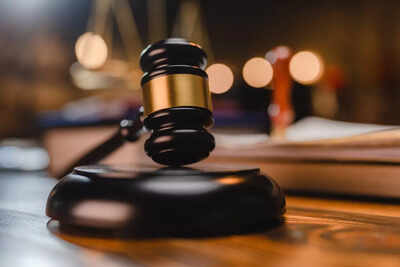A federal judge in Boston has extended a block on President Donald Trump’s executive order barring foreign students from entering the United States to study at Harvard University, calling into question the administration’s motives and its authority to interfere with academic institutions.At the center of the legal clash is a larger battle over autonomy, academic freedom, and the rights of international students caught in the crossfire of political agendas.
Harvard accuses Trump of weaponizing immigration policy
During a hearing on Monday, Harvard’s legal counsel delivered a scathing indictment of the Trump administration’s conduct, accusing the president of using Harvard’s international students as “pawns” in a political game aimed at punishing the university for its ideological independence.“I think there is no finding that Harvard is dangerous,” said Ian Gershengorn, attorney for Harvard. “The administration has overstepped its legal bounds and is retaliating against Harvard for not yielding to its political demands.”The lawsuit follows Trump’s controversial proclamation earlier this month, citing “national security concerns” as justification for blocking foreign students from entering the US to attend Harvard. The executive action came on the heels of repeated federal attempts to revoke the university’s authority to host international students under the Student and Exchange Visitor Program (SEVP).
Judge extends restraining order, raises questions over motives
US District Judge Allison Burroughs extended a temporary restraining order on the proclamation until June 23, buying more time to consider Harvard’s request for a preliminary injunction. The order, first issued on June 5, temporarily halts enforcement of Trump’s directive and his administration’s move to strip Harvard of its SEVP certification.Judge Burroughs, who presided over Monday’s hearing, expressed concern over the government’s approach and appeared skeptical of its justification. The disparity in legal representation, Harvard’s six attorneys versus a single Justice Department lawyer, Tiberius Davis, was noted by the judge herself.“Not only do you have this case, but you have it alone,” Burroughs remarked to Davis, hinting at the uneven legal weight being applied.
Harvard’s standing is threatened on the Global stage
The stakes are high for Harvard. The school’s legal filing argues that without its international students, its identity as a premier global institution is fundamentally compromised.“Without its international students, Harvard is not Harvard,” the lawsuit states, noting the reputational damage and competitive disadvantage the school now faces.Graduate programmes that rely heavily on international talent would be upended by the ban. In response to the uncertainty, foreign universities, including some in Hong Kong, have already extended invitations to affected students, threatening a potential exodus of global academic talent.
Federal ultimatums and accusations of bias
The clash follows months of escalating tension between Harvard and the Trump administration. After the university resisted federal directives targeting alleged liberal bias and antisemitism on campus, Homeland Security Secretary Kristi Noem demanded extensive records related to international students. Although Harvard complied, Noem found the response inadequate and revoked the university’s SEVP certification on May 22.Trump’s broader campaign against the university has included cutting over $2.6 billion in research grants, revoking federal contracts, and threatening to end its tax-exempt status. Harvard President Alan Garber responded by affirming the university’s commitment to its legal and institutional values.“Harvard will not stray from its core, legally-protected principles,” Garber said.
Government’s defense: “Other universities might be better”
While Harvard argues it is being unfairly targeted, the Trump administration insists it has scrutinised multiple universities and that Harvard alone is not being singled out. DOJ attorney Tiberius Davis said the federal government views “other universities might be better” suited to host foreign students under the new policy framework.“The power is within Harvard to fix this,” Davis claimed, implying that Harvard’s institutional culture and perceived resistance to federal oversight contributed to its treatment.But legal observers and academic leaders have questioned the transparency and fairness of that assessment, suggesting that the administration’s actions represent an attempt to silence dissent and impose ideological conformity.
Looking ahead: A precedent-setting case
As Judge Burroughs prepares to issue a ruling on the preliminary injunction, the case may set an important precedent for how much influence a presidential administration can exert over private academic institutions. The decision could also have sweeping implications for the rights of foreign students in the United States and the future of American higher education’s global reputation.For now, the legal shield remains in place, but the battle over borders, academic freedom, and federal overreach is far from over.












